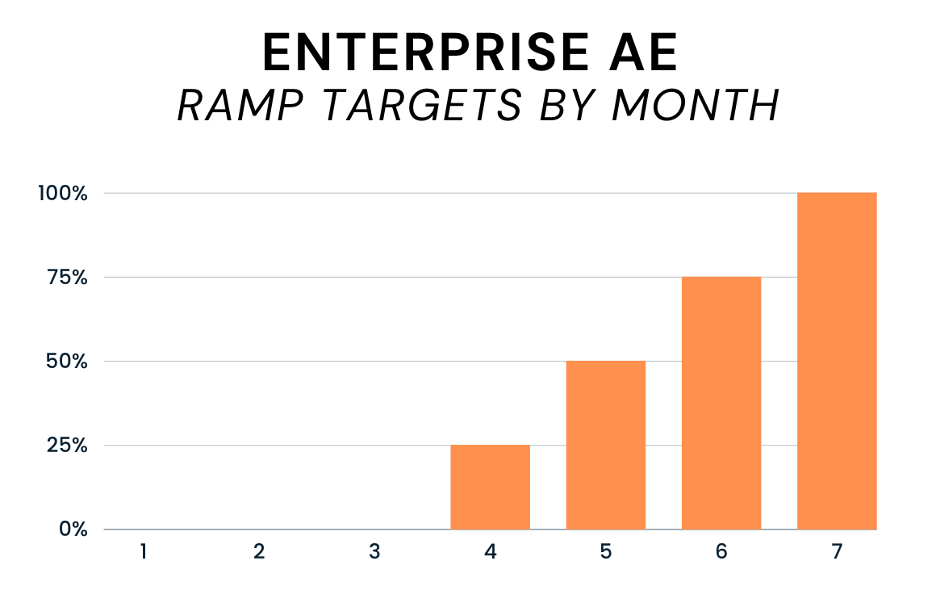Guiding the way
Policies, procedures, and guidelines make operational decisions better, faster, and consistent.
What happens to active deals in the pipeline when an employee goes out for an approved leave of absence? What kind of ramp does an account executive get when they are moving to a new sales segment? If you must debook a deal, how and when do you claw back a paid commission?
These are just a few of the questions that revops organizations deal with on a weekly basis. One of the most important things a revops organization can do is maintain an up-to-date policy guide. Why is this important? First, so that everyone knows the rules and has a single place to look for them. Second, so that we treat everyone fairly and consistently. The last thing we want to see happening is people being treated differently or having any appearance of bias or favorites. The revops organization needs to be seen as impartial and fair and doing the best for the business.
Here is a list of some of the topics important in a policy guide:
Segmentation strategy: what are your sales segments (are they based on employee size company revenue, or geographic boundaries) – make sure you have clear definitions on what your sales segments are
Ownership
When does a sales executive “own” an account
Account “on hold” policies if segments are changing
M&A policies – who owns the account now?
Cross-segment deal movement ownership policies
Terminated rep policies
Commissions and bonus policies
SPIFF’s
Upsells
Split deals
House accounts
Process for debooking a deal
Lead -> Deal policies
At every stage – what are the clear criteria for entering and exiting every stage in the sales process? What steps need to be accomplished?
MQL->SAL->SQL->QUAL->SELECTED->WON
Ramp times
How much ramp does a seller get in each segment?
How do commissions work during a ramp period?
Do you get acceleration in a ramp period?
Does a seller get ramp time when switching segments and if so how much?
How do commissions get calculated and paid when a seller is switching segments and in a new ramp?
Leave of Absence
What happens to existing deals by stage when someone goes on a leave of absence?
What’s the ramp time for a seller returning from a leave of absence?
Policy guide updates
How often does the policy guide change
How do you notify people of changes to the policy guide
Do new policies go into effect on all existing deals in the pipeline if it would affect them or only new ones?
Deal Approval matrix
Pricing Approval (discount) matrix
Let me go deeper into one of the policies as an example – let’s talk about ramp time. For new sales hires – having a ramp is critically important. A new seller needs to get fully enabled on the product, the sales cycle, how to work with pricing, how to work with legal, how to work with the BDR team, the marketing team, the channel team, etc. It’s a huge lift and we want to make sure we’re putting in place a process to make them successful.
Let’s assume we have done a proper analysis and know that it takes approximately 6 months to fully ramp up an enterprise account executive.
One of the first questions to address is – how much compensation should a sales rep be making during those months when they have a 0% quota. Sales leaders have different philosophies on this topic. Salespeople are coin-operated and highly motivated to make money (for them and you!). They’ve come to your organization with the intention to help you sell your product or service and get compensated for it. They are making an investment by coming there, and the company is investing in them expecting significant future returns. In the last few places I’ve helped set policies on this we’ve usually settled on 50% during those months when a sales rep has a 0% target (I’ve seen it higher and lower – but that seems to be where I see things settling in these days). So if a sales rep has an annual commissions target of $120K ($10K/month) – we will guarantee them $5K/month for those first three months as a non-recoverable draw. Cost of doing business.
Now the question is – how do you pay them during those ramping months where they have a reduced quota. Let’s say their sales target was $100K/month and they are on a quarterly plan. If the quarter had months 4,5,6 their sales target would be ($100K x 25%) + ($100K x 50%) + ($100K x 75%) = $150K (so half of a normal quarter once fully ramped).
Let’s say that you have accelerators in your comp plan (I hope you do!) – how do you pay out then? This is where it gets a little trickier and a well-written policy is key. Let’s say they got a bluebird and sold a $750K deal. In a normal quarter that would be awesome (250% of quota) – but in this acceleration period it would be 500% of quota. You obviously do not want to be paying them out 500% with massive acceleration on a reduced quota.
So there are three approaches. One approach – which I don’t like – is to just say that you don’t pay any acceleration during ramp. Thank you very much for closing that massive deal – and the company gets all of the benefits. This is a terrible approach and will likely lead to salespeople leaving if they learn about it.
A second and better approach is to say – you’ve hit your ramp and we’re paying you 100% of your quarterly commission – and for everything that was sold above the ramp quota – we’re paying you out at your normal, non-accelerated rate. This rewards the salesperson in a reasonable way and also recognizes that this happened during a ramp (and was also likely a bluebird) deal.
A third way that I’ve used in the past is to say to the salesperson – you’ve absolutely crushed it this quarter. Thank you. If you are now confident – we’ll take you out of your ramp (if you and your sales manager agree) – and pay you the full amount with acceleration as if you were in a regular quarter (and measuring it against the normal full commission for a quarter). This works well when someone is nearing the end of a ramp period. If they happen to get this bluebird when they are in month 2 in the example above though, this might not be setting them up for success (they may have gotten super lucky once and they don’t have the fundamentals in place and will struggle for months to come).
Anyhow – I didn’t cover all of the options obviously (e.g. – what happens if they crush it in month 2 when they have 0 quota – what do you pay them)? It was just to highlight that having a clear and well-written policy book is critical for every revops organization.
If there’s a particular policy you have a question about or would like me to write about – let me know. At this point, I’ve written detailed policies on all of the topics above and many more. Companies have different philosophies and depending on what stage you are in (brand new startup, hypergrowth tech company, mature sales org in a mature market) – your policies can and should vary to meet your needs.
As always – a photo of Ollie to end the post.
Please reach out with any feedback, comments, or questions!
Best,
Steve






